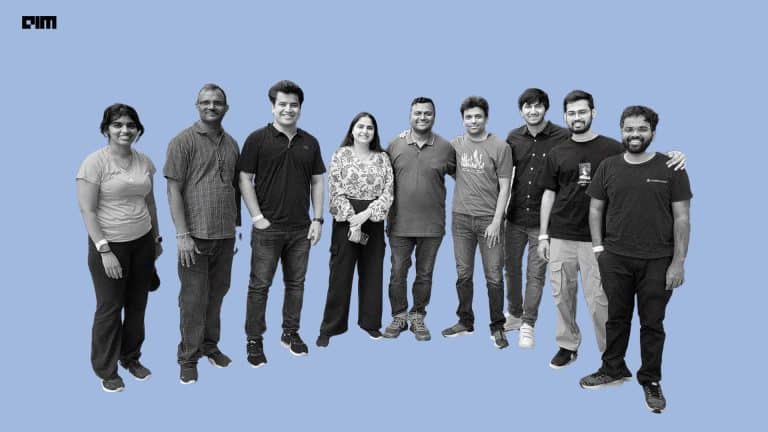Kaggle has emerged as a popular platform for existing and aspiring data scientists to demonstrate their skills by solving complex problems across industries. Many companies have been using it to crowdsource answers to discern patterns and solve tough problems, allowing them to evaluate potential employees purely on merit basis.
Given that the platform has evolved to become the world’s largest online community of data scientists, it provides companies with direct access to experts to fulfil their hiring needs. But how many rely on the competency displayed on Kaggle for their recruitment processes?
The ability to explore collaborations to solve problems certainly makes it a big draw for companies offering short-term projects and other contract work. But some argue that for data scientists looking to enter the industry for full-time positions, Kaggle competitions alone could be insubstantial.
One of the prime reasons for this may be the emphasis laid on real-world experiences, academic backgrounds as well as domain or industry knowledge, in addition to skills accrued over time or technical expertise. Rankings on Kaggle, although a great accomplishment, will not be enough unless candidate’s have one (or more) of the selling points mentioned above.
What is more, many companies understand that given the large number of people participating in Kaggle competitions, winning or getting a top-ranking position not only requires skill, but also a lot of time, and even a fair bit of luck. And even if Kaggle achievements help them land an interview, recruiters are more interested in knowing what candidates have learned from those competitions, and not on the medal itself.
ALSO READ: “Platforms Like Kaggle Have Changed The Hiring Landscape”
That is not to say that some companies do not give weight to Kaggle achievements. According to an article on Wired, Airbnb had onboarded a top-ranked solver on Kaggle after he won a competition. Other companies like Intel, Facebook and Yelp also sponsor Kaggle contests periodically to develop ML algorithms, and may even list experience winning Kaggle contests as one of the key requirements for hiring data scientists.
Kaggle rankings may be helpful in filtering imposters who claim to have a lot of skills but are inept at delivering actual work. While most companies turn to Kaggle to supplement their existing hiring approaches, there are several reasons behind the reluctance in completely relying on Kaggle to test competencies, and why these platforms remain an important component in the hiring strategies of many companies.
Limited Experience Dealing With Real-World Data
Kaggle users typically work on data that is already curated and cleaned, along with the exact question it is likely to provide an answer for. Since the opportunity to handle real-world problems using raw data is seldom presented on this platform, focusing entirely on skills demonstrated here will tell recruiters little about the candidate’s proficiency in covering other key elements of a data science project life-cycle.
Instead, work on personal projects with a data approach to build skills more holistically. Identify a question that can be answered with existing data, and formulate a strategy that could be helpful in arriving at a solution. While many may struggle to come with a satisfactory answer, this exercise will help them develop a broad understanding of the preparation demanded of a data science project – be it asking the right questions, or collecting and cleaning unstructured data.
Critical Tool To Practice Skills & Build Portfolio
Although the biggest draw for users is the Kaggle competitions, it also serves as an educational tool for them to apply their skills, as well as a portal to build a robust professional portfolio.
While aspiring data scientists must explore other avenues to practice their skills, Kaggle competitions certainly play a big part, even if it focuses mostly on a narrow part (ML-related work) of the overall data science project. Additionally, they should take time to construct a portfolio that includes published work as well as a few projects on GitHub, where the code is well-documented. By making it easier for recruiters to find these projects, they may be increasing their propensity to possibly being hired.
Furthermore, once they have solved a problem and added it to their portfolio, they should practice describing the project to friends and family. This will give them enough experience to effectively communicate their learnings and solutions – preparing them to do the same during interviews.
ALSO READ: Winning A Kaggle Competition Is Not Enough – Learn How To Take Your ML Learning Experience Forward
Lack Of Opportunities To Hone Business Acumen
A platform to practice solving problems notwithstanding, aspiring data scientists need to acquire a strong industry knowledge and business acumen to understand how their work will impact the bottom line, and Kaggle experience will not be worth much here. This is because candidates need to be able to communicate how they plan to implement their technical understanding to make business decisions.
While internships offer the best way to hone business acumen, all candidates may not be able to explore full-time unpaid opportunities for various reasons. Instead, they turn to online courses and other resources on business strategies to build relevant knowledge and make up for lost opportunities.
A data science life-cycle comprises many steps – extracting data, cleaning it, performing code, running algorithms, and most importantly, communicating with business stakeholders. Thus, an ideal arc of development would begin with entering a few Kaggle competitions, solving personal problems with real-world data, and possibly bagging a project that carries business implications.
Demonstrates User’s Passion
A user’s participation rate in Kaggle indicates to companies the passion that the candidate has for data science, given the time and dedication regular participation requires. What is more, with data science emerging as a top field for professionals looking to pivot for lucrative opportunities, a candidate’s Kaggle activity demonstrates their genuine devotion towards solving problems using data.
This is particularly true for entry-level positions and tells recruiters that the candidate is willing to learn. In most fields, getting a job offer is not just a factor of a candidate’s abilities, but also involves certain standard procedures that lay a lot of emphasis on resumes and interviews. Although important, in data science, candidates perhaps may be more in control because of additional tools to prove their competencies to recruiters.
Value Of Kaggle Not Fully Recognised
Many existing data scientists may use Kaggle to advance their careers, but the truth is that its value is still not fully recognised or appreciated by HR managers who may give weight to other less significant factors.
Doing well in multiple competitions, kernels and discussions demonstrates that the candidates take time to work on problems and apply their skills, thinks logically and shows attention to detail, and can add value by contributing ideas. However, with little knowledge of Kaggle and its counterparts, some HR representatives may overlook some key achievements of candidates.
Outlook
Doing well on Kaggle can help data scientists land an interview, but certainly not a job on its own. While it provides them with a good platform to hone their skills, the truth is that it only tests a subset of skills required to perform a data science role. Much more is demanded of data scientists in a business setting, which experience participating and even winning Kaggle competitions, although a plus, may not be sufficient.
Moreover, companies also like to consider a candidate’s attitude and approach to teamwork to find a well-rounded addition to their data science team. This means that most companies may not base a hiring decision on a candidate’s Kaggle ranking alone.



















































































